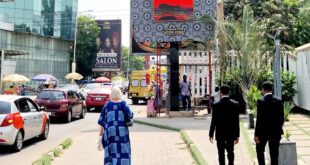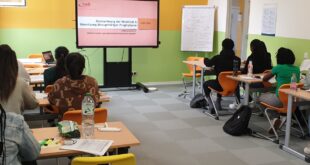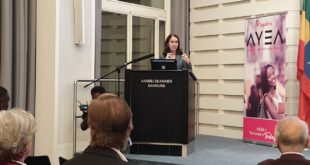The International School of Nursing Berlin has celebrated its first graduation, marking a major milestone for a pioneering institution that’s not only training much-needed nursing professionals, but also telling a powerful story of African success in Germany. Femi Awoniyi reports
![]()
The International School of Nursing Berlin (ISNB) marked a major milestone on Wednesday as it held its first graduation ceremony. The festive occasion was filled with inspiring speeches by students from across the globe, reflecting the school’s rich international character.
The ceremony was graced by several distinguished guests, including Her Excellency Alice Mashingidze, Zimbabwe’s Ambassador to Germany; Aldona Maria Niemczyk, a CDU member of the Berlin Parliament; Professor Gordon Heringshausen of Akkon University of Human Sciences; and Ms Katharina Bald of Berliner Sparkasse.
“She’s like a mother to us”
The event featured speeches, cultural performances and heartfelt testimonies from students representing 30 countries, including Egypt, Kenya, Nigeria, Uganda, Zimbabwe, Bangladesh, India and Pakistan, who spoke candidly about the challenges they faced in adapting to life and studies in Germany. A recurring theme in their stories was the unwavering support they received from the school’s founder, Zimbabwean-born nurse and educator Jane Saidi.
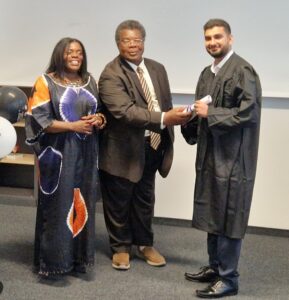
![]()
“She’s like a mother to us,” many students said, praising Saidi not just for her academic leadership but for her empathy and guidance. Saidi’s own journey, from student nurse to nursing school manager, has uniquely positioned her to understand the needs of international students, and to help them overcome the cultural and linguistic hurdles they face.
Mrs Saidi’s vision for the school is deeply rooted in her own experiences. “Many of our students face significant challenges — from language barriers to cultural differences — but I stand with them, just as I wished someone had stood with me,” she said.
Private institution with a public mission
Founded in 2022, ISNB is a private institution with a public mission: to contribute to resolving the acute shortage of health personnel in Germany. The country is already short of around 200,000 care workers, a figure expected to rise to 500,000 by 2030, according to the Institute of the German Economy. ISNB addresses this need by offering high-quality, inclusive training to aspiring nurses from around the globe.

![]()
The school offers a three-year training programme, which alternates between classroom instruction and hospital placements, that prepares students for the demands of the German healthcare system, while also helping those already trained abroad adapt to local requirements.
Students are paid a stipend, starting at €1,100 per month, and are typically guaranteed employment upon graduation, with starting salaries of at least €25 per hour. The curriculum is designed not only to prepare students for immediate employment but also to enable further academic advancement. Graduates can qualify for a Bachelor’s degree in Nursing in just one additional year.
But what sets ISNB apart is its commitment to international students. The curriculum is tailored to address language and cultural barriers, drawing on Saidi’s personal and professional experience. She observed over the years that many international nursing students struggle in German classrooms not due to lack of knowledge, but because of cultural norms that discourage speaking up – a challenge compounded by language limitations even after achieving the required B2 proficiency.

![]()
“I had to explain to teachers why some students seemed quiet, and that changed how they assessed them,” she told The African Courier.
ISNB also supports students before and after arrival in Germany, assisting with visa processes, certificate recognition and integration.
Why ISNB stands out
While Germany already has around 1,500 nursing schools, ISNB stands out for its international focus and commitment to inclusion. It not only trains future nurses, but also empowers them to dream bigger.
Mrs Saidi encourages aspiring students from Africa to start by investing in German language proficiency. “Language is the biggest barrier,” she says. “But once you overcome it, the doors in Germany open wide. Nursing students here don’t pay tuition, they get paid to train.”
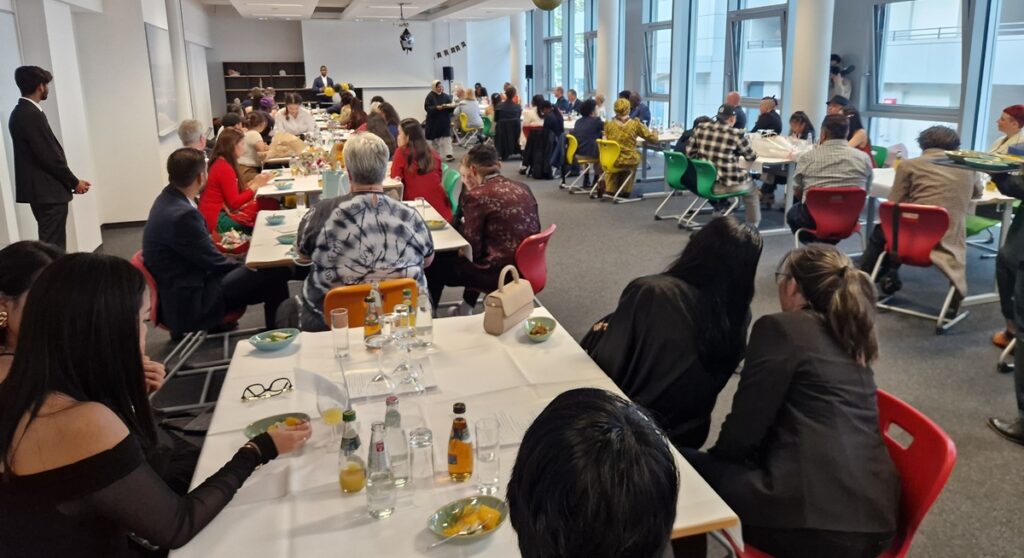
![]()
Of the 46 students who began the training cohort, 20 successfully graduated — a testament both to the rigorous standards of the programme and the strong support provided by the school.
The overall graduation rate in Berlin stands at 51.9 per cent, meaning that roughly half of all trainees successfully complete their nursing training. However, it is well known that foreign trainees often face additional challenges such as language barriers and recognition procedures, which can have a negative impact on their graduation rate. Some institutions report graduation rates among foreign trainees as low as 20 percent, making ISNB’s results noteworthy and a clear indication of its commitment to helping students overcome barriers and succeed in their careers.
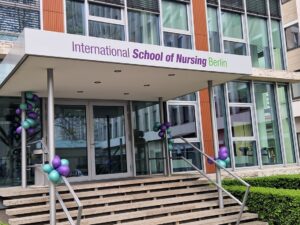
![]()
The International School of Nursing Berlin is more than just an educational institution; it’s a bridge between continents, a model of inclusion and a powerful testament to what African entrepreneurship and leadership can achieve in Germany.
 THE AFRICAN COURIER. Reporting Africa and its Diaspora! The African Courier is an international magazine published in Germany to report on Africa and the Diaspora African experience. The first issue of the bimonthly magazine appeared on the newsstands on 15 February 1998. The African Courier is a communication forum for European-African political, economic and cultural exchanges, and a voice for Africa in Europe.
THE AFRICAN COURIER. Reporting Africa and its Diaspora! The African Courier is an international magazine published in Germany to report on Africa and the Diaspora African experience. The first issue of the bimonthly magazine appeared on the newsstands on 15 February 1998. The African Courier is a communication forum for European-African political, economic and cultural exchanges, and a voice for Africa in Europe.














